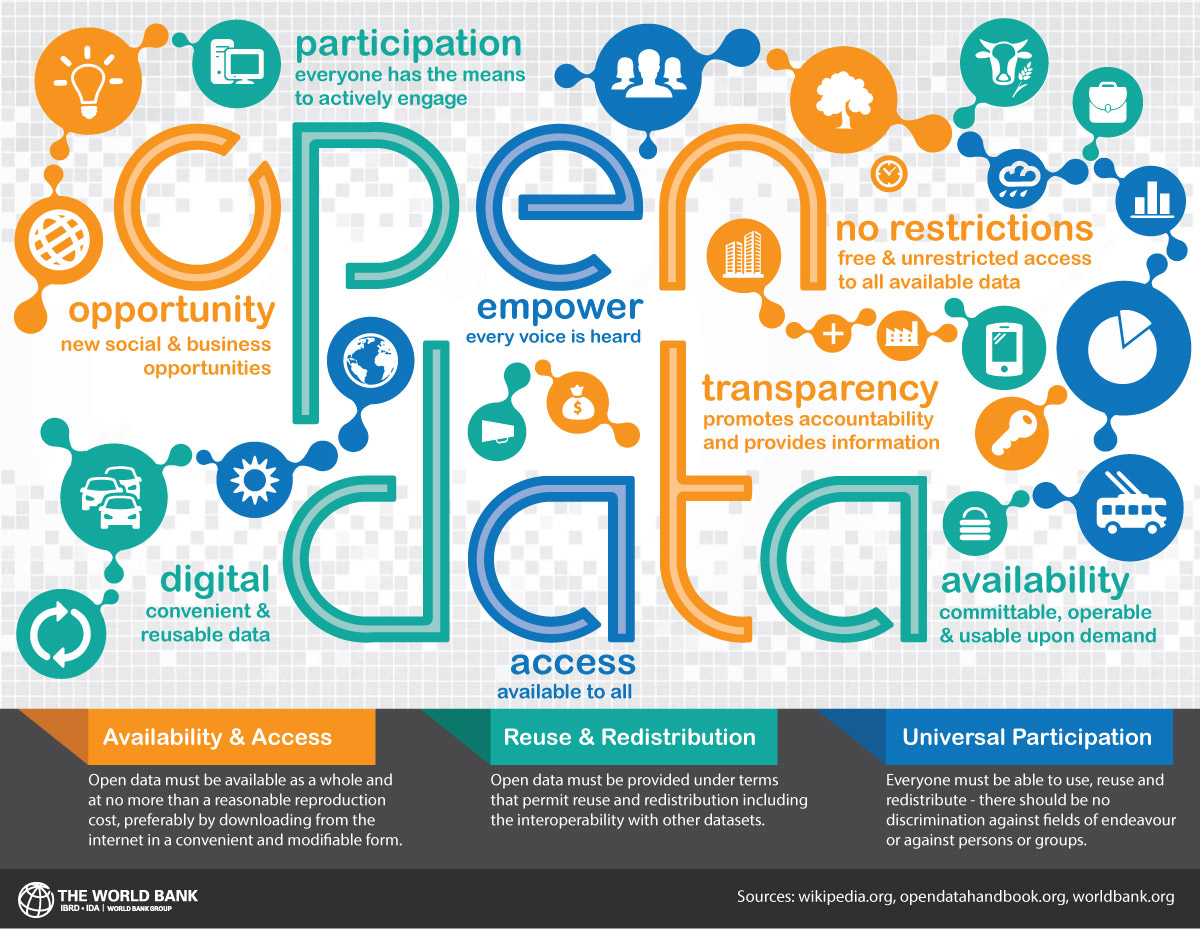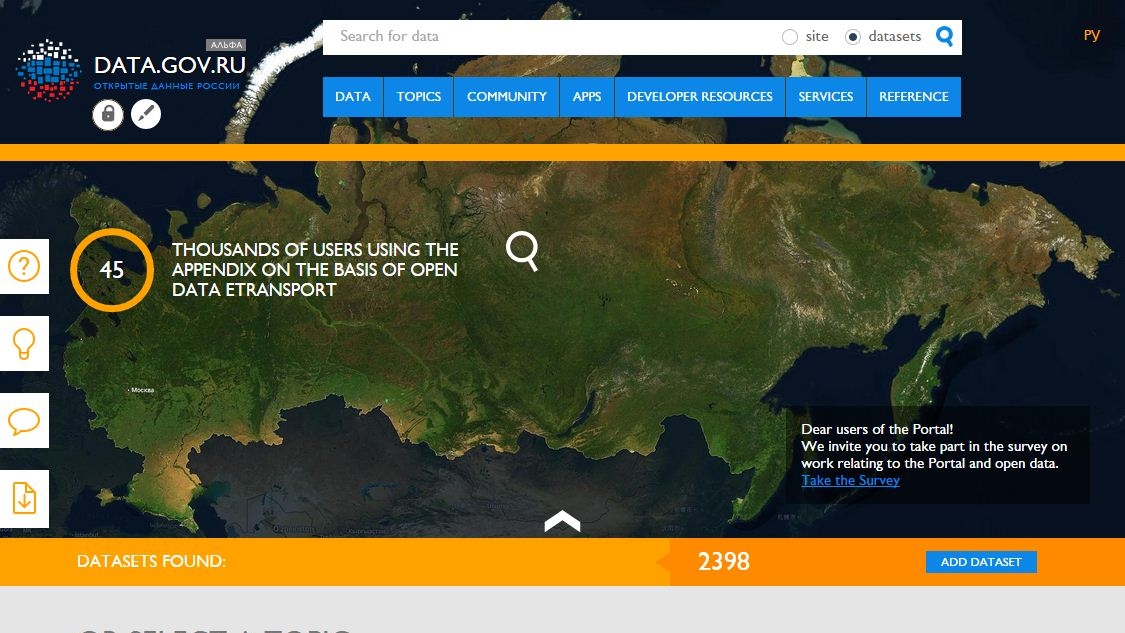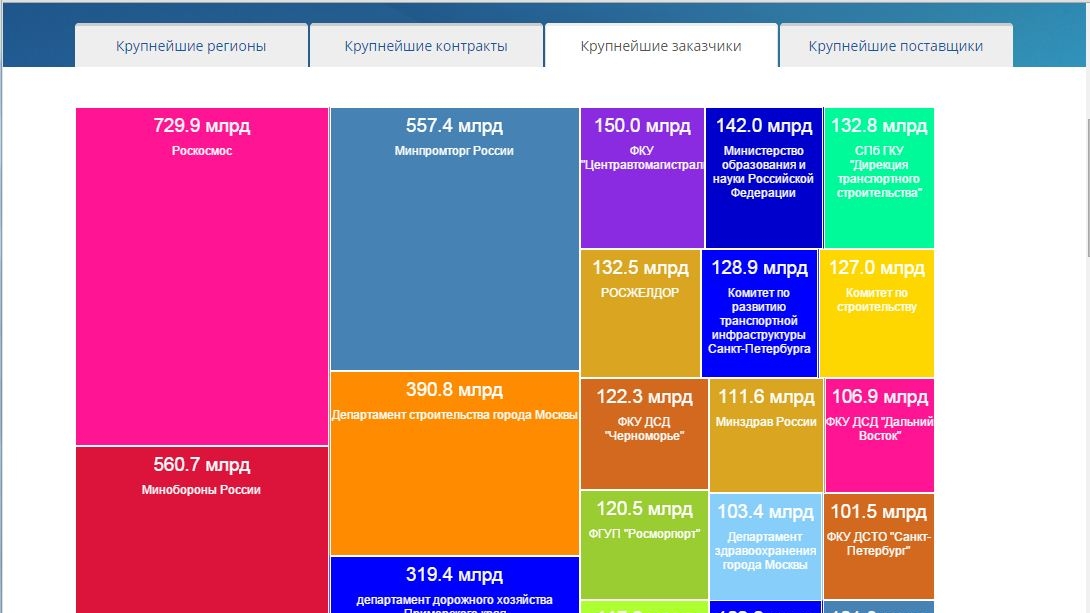What Can Open Data Offer?
Open Data essentially refers to the idea that certain data should be made freely available for use and re-use by anyone and everyone. Data that is truly “open” generally has the following characteristics: accessible via the Internet; in digital and machine-readable format for interoperability with other data; and free of restriction for use or redistribution.
There are many areas where Open Data provides value-added, and many examples of how it has been used to good effect. Open Government Data, for example, can help citizens to make better decisions and choices with regard to accessing and utilizing public services, and can encourage people to be active in society.
Based on general Open Data principles, Open Government Data provides transparency through free and unrestricted access to government data and information: in other words, it lets people know what the government is doing on their behalf. Transparency isn’t just about access, however. It is also about sharing and reuse of data, which can be instrumental in helping to visualize, analyze and understand complex socio-economic issues.
Open Government Data also provides business opportunities by granting people access to a wide variety of valuable data which can then help drive the creation of innovative ventures and services, many of which deliver social and commercial value.
Participatory governance is an equally important aspect of Open Government Data, enabling greater citizen-government engagement (through elections or referendums) and encouraging input into national and local government decision-making. These opportunities are part of the shift from a “read-only” society to a “read/write” society – one in which it is possible for citizens to not only see what is happening in terms of governance, but also to contribute.
Open Data in Russia
Open Data, especially data released by the government, is an immense resource that is still relatively new and as yet largely untapped in Russia. Nevertheless, some in-roads have been made recently. For example, almost 2,400 datasets have been made public through Russia’s Open Data portal (https://data.gov.ru/), in addition to some regional and city data portal initiatives. The Open Data portal provides access to 2,398 datasets (as of December 2014) and is divided into 16 major topics that include hydrometeorology, mapping, education, transport and health.
Clearspending (https://clearspending.ru) is a portal that uses Open Government Data to track and visualize government spending, and monitors over 12 million contracts, 270,000 contractors, and 900,000 vendors. Importantly, it has helped to identify over 4 million procurement violations to date.



